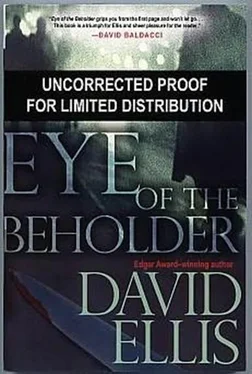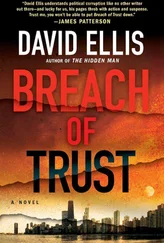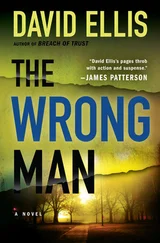“There’s a thought,” I say, “that someone is following the song lyrics again. Some people have been murdered.”
That does the trick. Her eyes widen, the expression softening. She points back behind her, to the dock. “I was just about to take a boat ride,” she says.
McDERMOTT only briefly glances at the glossies of the victim. He already knows the details-the wound to the right temple, then the massive beating she took to the top of her skull, multiple blows rained down on her. Whoever did this had no compunction about what he was doing, no hesitation whatsoever.
That’s all he needs to see, and more than he wants to.
Stoletti scoops the photos off his desk and looks through them. She’s been partnered with him long enough; she knows he has a problem with female murder victims. She’s smart enough to know why, too, though the two of them have never discussed it.
It hasn’t gotten easier. He figured he needed time after Joyce’s death, after finding her lying dead in the bathroom, before he could look at another dead body without effect. But it’s been four goddamn years, and, still, at least with women, he cringes every time. It’s about a forty-sixty mix of female-to-male victims. That’s a lot of crime scenes you don’t want to handle, a lot of photographs you can’t bear to study.
He can push out the images at night. He can push them out in the sunlight or in the heat of a busy day. Something about the crime scenes themselves, the smell and feel of death so prominent, that brings it back more vividly than his imagination otherwise permits: The vacant stare of her eyes, the awkward posturing of her body-her legs crossed in rigor mortis, her body toppled to the right like a statute knocked on its side-the pool of blood leading all the way to the bathtub, where little Gracie sat motionless, her eyes squeezed shut, her hands over her ears, her body gently rocking.
He sees these victims, like the one here in the glossies, and he imagines the reaction of the next of kin, something like his own response: Nothing, absolutely nothing, could be worse.
He alternates blame. There are times, yes, when he directs his anger at Joyce, when he attributes to his wife responsibility and self-awareness that he knows, in his heart, she simply no longer possessed.
Most of the time, he finds the right target. He should have seen the changes in her sooner. He should have been more demanding about her treatment.
And what happened the night before her death, and the next morning-there is simply no one else to blame.
Funny, that he never thought of leaving the job. He could make a pretty good argument for why he should. A homicide detective who doesn’t like crime scenes is like an acrobat who doesn’t like heights. But he’s the son and grandson of cops. It’s all he ever wanted. It’s all he’s ever known. He’s done it right, too. He’s sure of it. He’s still a good cop.
Right, a good cop, a solid gut, keen intuition, who couldn’t see that his own wife was slowly losing her mind.
“This whole thing,” Stoletti says. “It just doesn’t make sense.”
McDermott snaps out of his trance. “What?”
“This doesn’t work for me, Mike. It’s weird.”
He takes a breath, drops in a chair. Good. Case talk. Familiar terrain.
“How was he with the Albany interview?” McDermott asks her.
“Fine. Actually, pretty good,” she concedes. “He got the professor to open up better than I did. He gets the credit for uncovering the stuff about abortions and pregnancies.”
McDermott thinks about that. “I suppose, with this new information, you could look on that interview in a different light.”
One of the other detectives, Koessl, walks into the conference room and flips open a notepad. “Mike, there are eight retailers that sell Trim-Meter chain saws. Two in the city, six outlying.”
“Only eight?”
“Trim-Meter hasn’t made a chain saw for almost ten years. A few places sell Trim-Meters used. But none of them has sold one in the last three months.”
“Okay, Tom.” McDermott blows out. “And they have instructions to call us if anyone tries to buy one?”
“You bet,” he says.
When the detective leaves them, they are back where they started.
“Take your personal feelings out of this,” he tells Stoletti.
She shoots him a look. She deserves better than that. However she may feel about Paul Riley, McDermott has found Stoletti to be a great cop. First time he ever partnered with a woman, and he wasn’t thrilled with the assignment, but she’s probably the best partner he’s had. Something about the lack of testosterone, the smaller ego-she’s always kept a clear head. He’s come to find that he relies on her gut as much as his own.
“The question,” she says, “is whether this new thing is isolated. A coincidence.”
He nods. “It’s hard to think this is a coincidence.”
“But then that makes Paul Riley a murderer,” she says.
Another detective, Bax, pops his head in. “Chief, we got something on Fred Ciancio. Come take a look.”
Stoletti looks at McDermott. “To be continued,” she says, as they both get up.
McDermott grabs her arm as she’s walking out. “The lab should still have samples left over from Burgos, right?”
She says yes. The County Attorney Technical Unit has a massive archives building on the west side.
“We have something now they didn’t have in 1989,” he says.
She stares at him, then gives a slow nod of recognition. “You want to run DNA tests on Terry Burgos and the victims?”
“I do,” he answers. “And we’re not waiting two months, Ricki. You tell them what you need to tell them. Use the commander’s name. This goes to the top of the list.”
DOWN ON THE DOCK, Gwendolyn cranks a large wheel fastened to the boat. I offer to help but she defers, her face showing familiar strain. When the boat is down in the water, she looks back at me, like she’s giving me a second chance. She can probably read the expression on my face. “You don’t like water?”
Shelly eagerly turns to me as well, suppressing a smile, awaiting my response. She knows very well that I have a minor issue with swimming. The minor issue is, I can’t swim. My arms and legs move like they’re supposed to, but I sink, every time. Still, I’d be willing to hang glide over the Andes if it would loosen Gwendolyn’s tongue.
She starts the engine while we step in. The boat is really one long, flat deck, surrounded on all sides by a white leather safety railing and leather-upholstered seating, with the steering and controls off to one side. The deck rests on what, to my eye, are glorified skis. This is like a giant, waterbound sled.
“A pontoon,” she informs me, as she backs the boat out from under the canopy. “So you’re the one who charged Burgos,” she says. “And now you’re Harland’s lawyer,” she says.
The way she puts it together like that makes me uncomfortable. Not altogether different from how Evelyn Pendry said it. “I am. He’s doing well,” I add, though she didn’t ask.
“No doubt,” she mumbles. She moves the pontoon forward, and I sit in relative comfort as the breeze cuts the heat from the overhead sun. We scoot out to the middle of the giant lake, and she idles the boat, which should make the choppiness of the water more apparent, but maybe added stability is one of the benefits of a pontoon. I see lake cabins on both sides of the water, kids jumping off docks and playing on large waterslides. The shouts of people water-skiing or tubing, the grinding hum of motorboats, echo around us.
Gwendolyn’s reaction is consistent with Harland’s opinion of her. When we were investigating the Burgos murders, Gwendolyn’s name came up once or twice, only because there were so few people who knew Cassie. Gwendolyn, from what we’d heard, was the polar opposite of Cassie. Gwen was the spoiled, nasty party girl, Cassie, innocent and solitary. But I never laid eyes on her because she was out of the country the whole time.
Читать дальше












